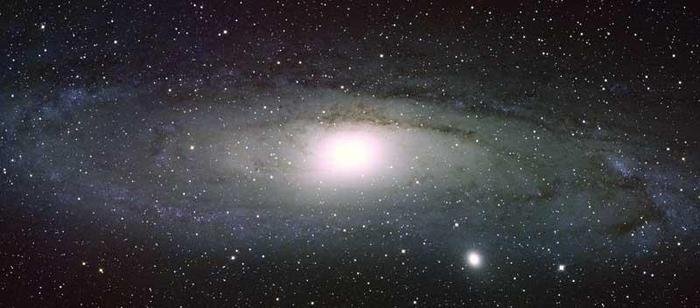Andromeda Galaxy. A modified law of gravity correctly predicted, in advance of the observations, the velocity dispersion -- the average speed of stars within a galaxy relative to each other -- in 10 dwarf satellite galaxies of the Milky Way's giant neighbor Andromeda. Credit: Bill Schoening, Vanessa Harvey/REU program/NOAO/AURA/NSF
CLEVELAND, Aug. 28 (UPI) -- A modified law of gravity correctly predicted the behavior of stars in galaxies of the Milky Way's neighbor Andromeda, U.S. and Israeli scientists say.
The prediction made with the alternative hypothesis, Modified Newtonian Dynamics, predicted in advance of confirming observations behavior previously attributed to the presence of dark matter, they said.
In a study submitted to the Astrophysical Journal, Stacy McGaugh, professor of astronomy at Case Western Reserve University in Cleveland, and Mordehai Milgrom, the father of MOND and professor of physics at Weizmann Institute in Israel, report testing MOND on galaxies that are satellites of Andromeda.
With conventional gravity, the behaviors of their stars infer those galaxies contain huge amounts of dark matter, but with MOND the behaviors can be predicted without the implied effect of dark energy, the researchers said.
"Most scientists are more comfortable with the dark matter interpretation," McGaugh said. "But we need to understand why MOND succeeds with these predictions. We don't even know how to make this prediction with dark matter.
"At stake now is whether the universe is predominantly made of an invisible substance that persistently eludes detection in the laboratory, or whether we are obliged to modify one of our most fundamental theories, the law of gravity," McGaugh said.
The MOND hypothesis says Newton's force law must be tweaked at low acceleration -- 11 orders of magnitude lower than what we feel on the surface of Earth. Acceleration above that threshold is linearly proportional to the force of gravity -- as Newton's law says -- but below the threshold it is not, McGaugh and Milgrom say.















